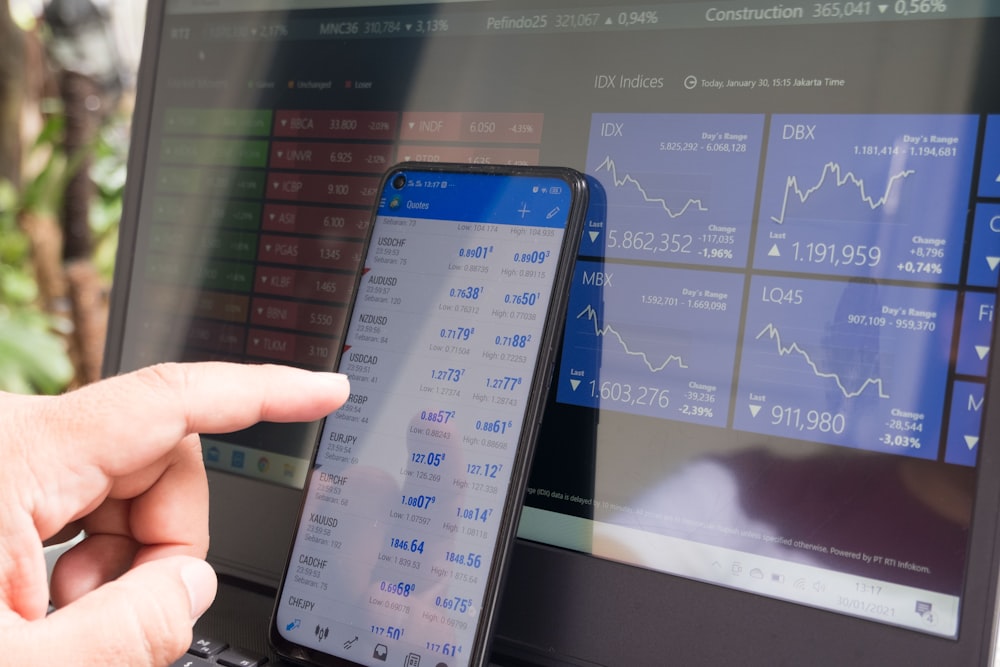Carried Away, Then Carried Out
Image Source: Unsplash
As those of us in the US awoke to the carnage in a wide range of overseas markets and even cryptocurrencies, the following question came to me in my morning Wordle text group:
Steve, how bad will it be today?
The query came from a friend who is the CFO of a mid-sized company, so he is hardly a financial neophyte. But that knowledge may have made him even more attuned to the global markets’ goings on. My response was:
Quite. There are leveraged investors blowing up because they borrowed immense amounts of low-yielding yen to buy everything else – Japanese stocks, US tech, crypto, etc. Some were starting to lighten up ahead of the Bank of Japan meeting last week, and it really accelerated after they raised rates. So now the yen is screaming higher, creating a nasty feedback loop. It’s hard to know when those end. Buffett revealing that he sold half his AAPL and carries more cash than ever ($277 bn !) is the last news the market needed this weekend.
There’s much to unpack from that hasty text. While it is gratifying to see markets recovering from their early lows, stocks remain lower across the board. But when we’re looking at pre-market 5% declines in key index futures and VIX trading around 50, that is a clear sign that something is severely amiss.
I honestly don’t know what our clients may have experienced this morning (and if I did, I couldn’t write about it), but I feel comfortable in saying that the turmoil that we saw overnight and on the opening this morning had the feel of forced selling. I can’t say with any certainty whether that came from risk managers instructing traders or forced closeouts that resulted from offsides margin exposures (something I alluded to on TV on Friday), but there was a certain “get me out” quality to the pre-market and opening trades that since have subsided.
A key reason for the forced selling, though hardly the only potential one, is the continual unwinding of the “carry trade” involving the Japanese yen. For years it has been the preferred currency for financing leveraged investments because it has continually yielded something close to 0%, making it a very inexpensive place to borrow. As most of the world’s central banks raised rates over the past few years, the Bank of Japan resolutely kept rates low. The resulting interest rate differential pressured the yen, and it steadily declined against most other world currencies.
That decline further emboldened the carry traders. It is one thing to pay back a low-yielding loan, an even better thing to pay it back with a depreciating currency. Even better, that depreciating yen helped the exporters that dominate key Japanese equity indices. So, it became quite popular to borrow yen and buy Japanese stocks or indices, and also quite popular to borrow to buy high momentum stocks such as the Magnificent 7 in the US.
But momentum has a nasty way of reversing course at inopportune times. We started to see the yen appreciate ahead of Wednesday’s BOJ meeting, which concerned us. One week ago we wrote:
Any or all of these events [FOMC meeting; MSFT, META, AAPL, AMZN earnings; July Payrolls] has the potential to move markets. We all know about the power of the FOMC and Jobs Report, but I am actually quite concerned about the outcome of the BOJ meeting tonight. There is currently a 70% chance that they will raise rates by 10 basis points at this meeting. That hardly seems meaningful, but it is clearly an “in-play” meeting (as opposed to the 4% chance for a Fed rate cut). Considering the dislocations that coincided with, if not caused by, the recent rapid appreciation of the yen and its effect upon carry trades, a significant currency move in either direction could have profound effects on risk assets.
Ummm, yeah. The effect on Japanese stocks has been profound, and scarily so on their bank stocks. That had clearly spilled out into global markets overnight. And again, the idea that Warren Buffett has sold half of his main Mag 7 position and might now hold more T-bills than the Federal Reserve is not exactly the sort of buy signal that people hoped for.
That said, of course, we’re now getting some bargain hunters sniffing around. Some started early. Another friend in the text chain, an astute day trader, said he was selling VIX puts pre-market above with that index above 50. (Fortunately he’s an IBKR customer because not every firm allows customers to trade pre-market VIX options.) That works for highly disciplined, experienced traders, but not for everyone. For longer-term investors, perhaps following the GOAT’s move to a defensive posture might be more appropriate. Simone Biles might be the gymnastics GOAT, but Buffett’s GOAT status has been earned over decades.
More By This Author:
Fed, BoJ, Mag7 Jitters Trigger Bearish Reversal
Trump Trade Rallies On Ahead Of A Big Week: Fed, BoJ, Jobs
This Is Becoming A Bit Of A Habit
Disclosure: Interactive Brokers
The analysis in this material is provided for information only and is not and should not be construed as an offer to sell or the solicitation of an offer to ...
more



